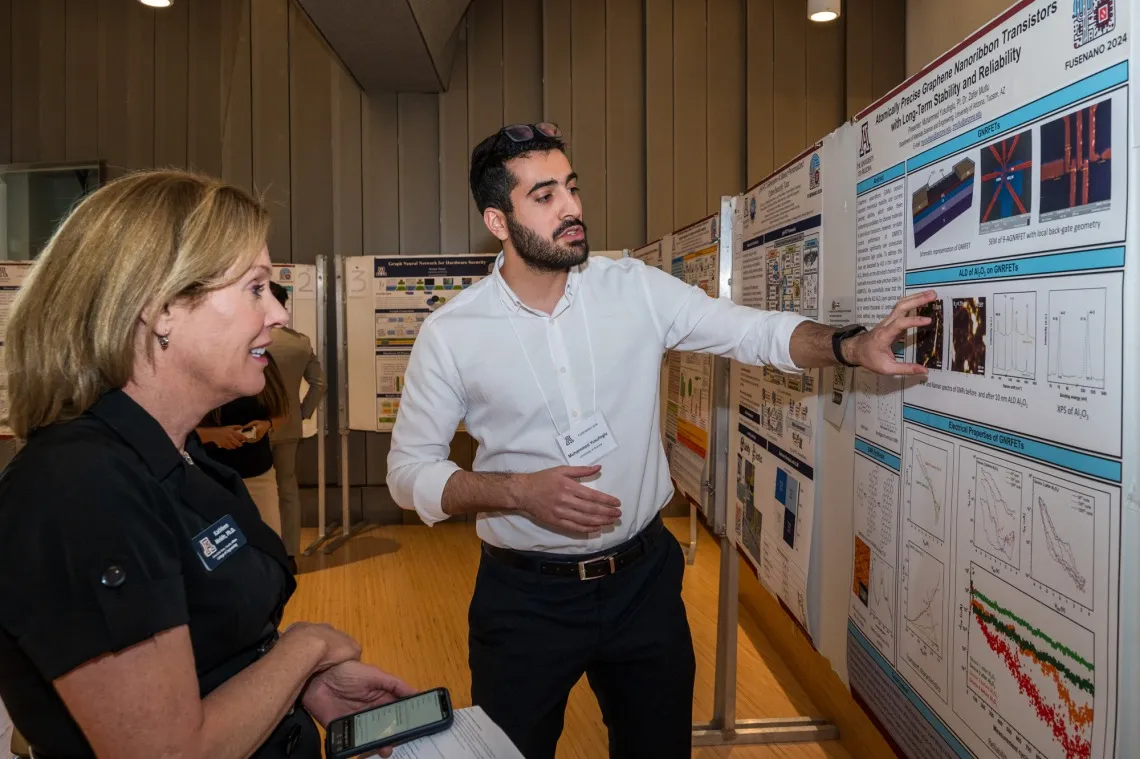Why experts are calling for a new strategy to improve U.S. access to semiconductors – the technology that underpins artificial intelligence
Sept. 16, 2024
Image

Muhammed Yusufoglu, a graduate student studying materials science and engineering, presents his research at the FuseNano 2024 conference
Experts say every advanced AI program – from the widely available ChatGPT to those run by the Department of Defense – depends on access to semiconductors. A new National Academies report recommends actions for the DoD to secure access to this critical technology. University of Arizona senior vice provost for academic affairs Liesl Folks, a professor of electrical and computer engineering and chair of the committee who wrote the report, discusses how access to semiconductors is shaping AI and what the report's recommendations could mean for its future
